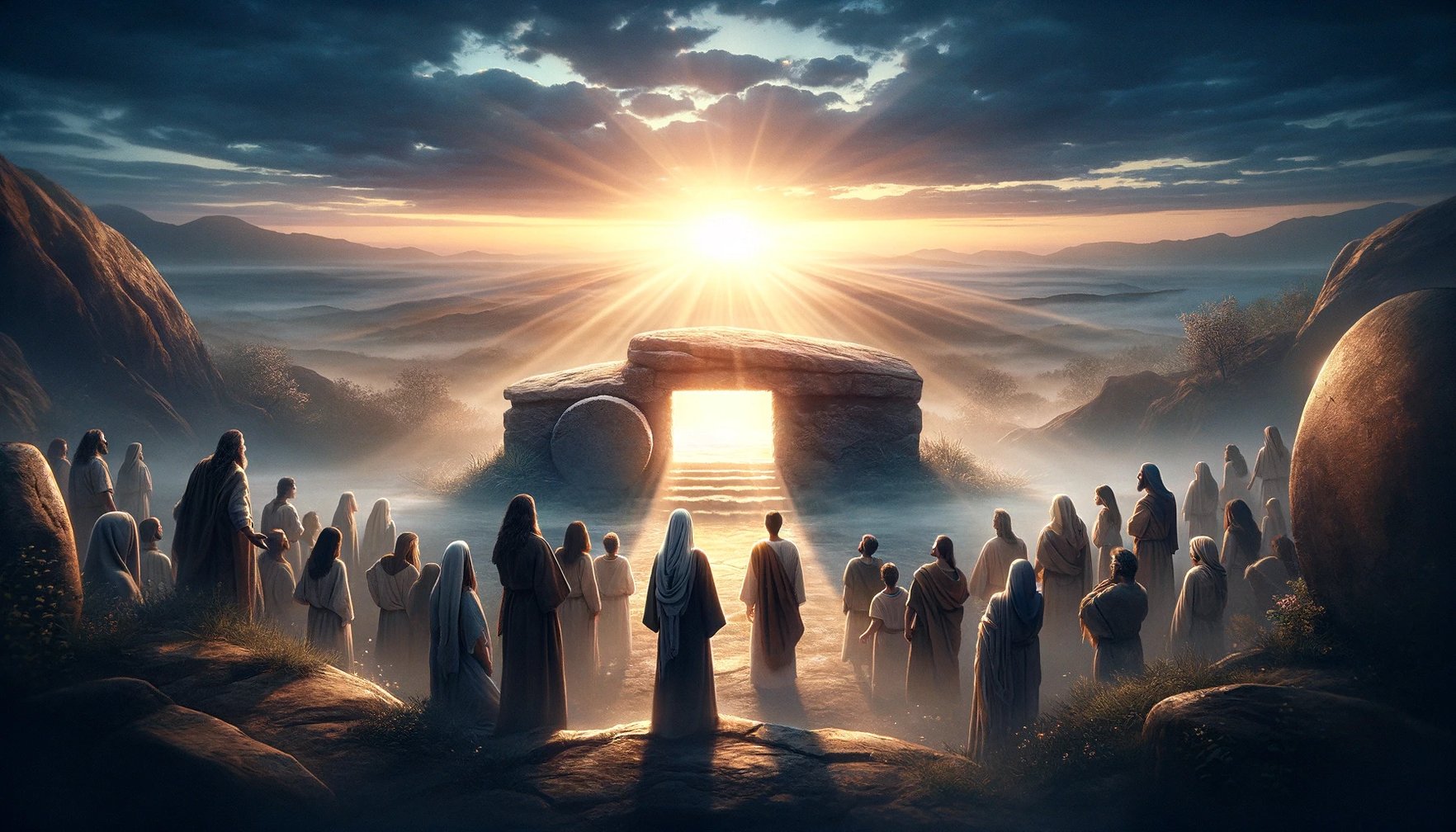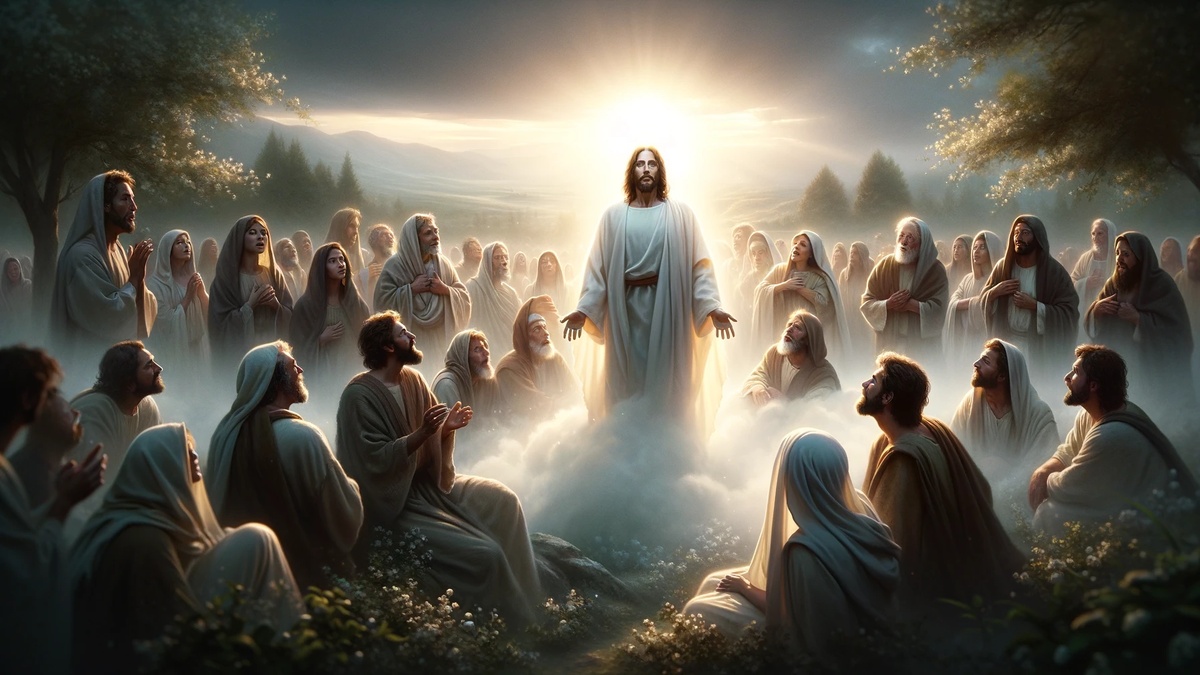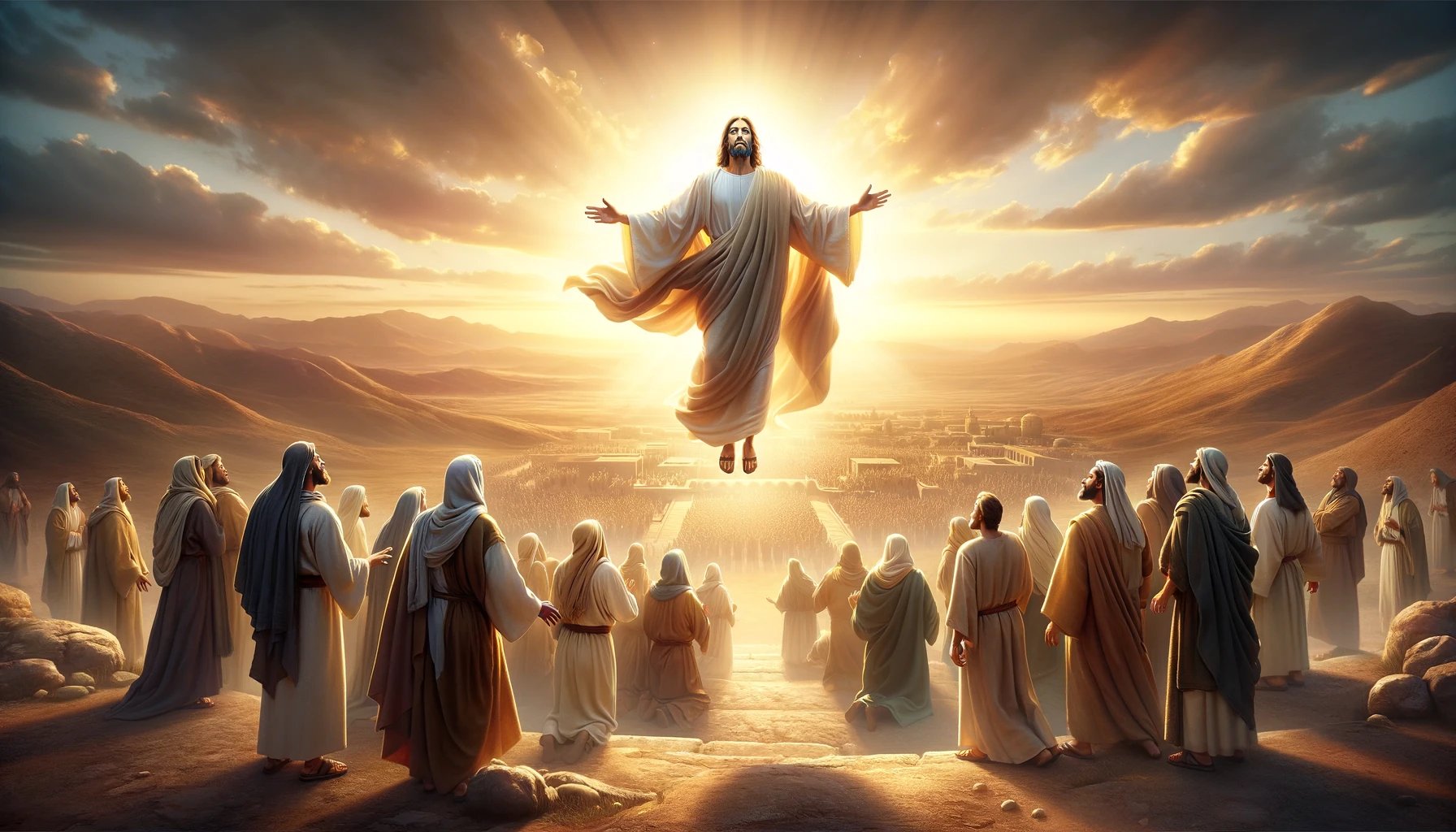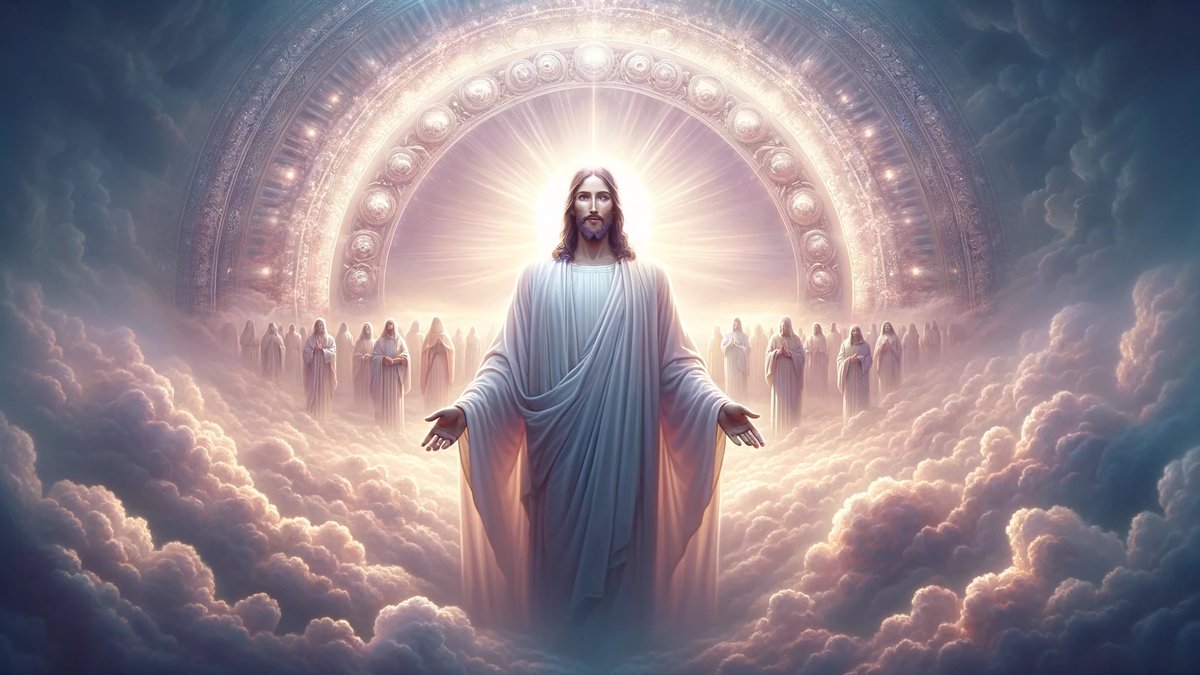Home>Christian Videos>Bible Stories>What Is The Meaning Of Resurrection Of Jesus Christ


Bible Stories
What Is The Meaning Of Resurrection Of Jesus Christ
Published: March 1, 2024
Peter Smith, Editorial Director at Christian.net, combines deep insights into faith, politics, and culture to lead content creation that resonates widely. Awarded for his contributions to religious discourse, he previously headed a major organization for religious communicators, enhancing dialogue on faith's societal impacts.
Discover the significance of the resurrection of Jesus Christ and its impact on the Bible stories. Explore the meaning and importance of this pivotal event in Christian faith.
(Many of the links in this article redirect to a specific reviewed product. Your purchase of these products through affiliate links helps to generate commission for Christian.net, at no extra cost. Learn more)
Table of Contents
- The Historical Context of Jesus Christ's Resurrection
- The Significance of Jesus Christ's Resurrection in Christianity
- The Theological Implications of Jesus Christ's Resurrection
- The Impact of Jesus Christ's Resurrection on Christian Believers
- The Symbolism of Jesus Christ's Resurrection in Christian Tradition
The Historical Context of Jesus Christ's Resurrection
The resurrection of Jesus Christ is a pivotal event in Christian theology and is believed to have occurred around 30-33 AD in Jerusalem. According to the New Testament, Jesus, who was crucified by the Romans, rose from the dead three days after his crucifixion. This event is not only central to Christian faith but also holds significant historical importance. The resurrection took place during a time of political and religious upheaval in the region, and its occurrence had a profound impact on the early Christian community. The historical context of Jesus Christ's resurrection is essential in understanding its significance and enduring influence on Christianity.
-
Political Climate: At the time of Jesus' crucifixion and resurrection, Judea was under Roman rule, and there was growing tension between the Jewish population and the Roman authorities. The political climate was tumultuous, and the presence of Roman soldiers in Jerusalem added to the atmosphere of unrest.
-
Religious Landscape: The Jewish religious landscape was also undergoing significant changes. The Pharisees, Sadducees, and other religious sects held differing beliefs and practices, and there was a sense of anticipation for the arrival of a messianic figure who would deliver the Jewish people from oppression.
-
Execution of Jesus: Jesus' crucifixion was a result of both religious and political factors. The Jewish religious leaders viewed him as a threat to their authority, while the Roman authorities saw him as a potential instigator of rebellion. His crucifixion was a public event, and it sent shockwaves through the community.
-
Empty Tomb: The discovery of the empty tomb and the subsequent appearances of Jesus to his followers were reported by early Christian sources, including the Gospels. These accounts became the foundation of the belief in Jesus' resurrection and were instrumental in shaping the early Christian community.
The historical context of Jesus Christ's resurrection provides a backdrop against which the significance of this event can be fully appreciated. It was a time of political turmoil, religious expectation, and social upheaval, and the resurrection of Jesus Christ emerged as a transformative and enduring phenomenon in this historical milieu.
Read more: On What Day Was Jesus Christ Resurrected
The Significance of Jesus Christ's Resurrection in Christianity
The significance of Jesus Christ's resurrection in Christianity cannot be overstated. It is the cornerstone of the Christian faith and holds profound meaning for believers around the world. Here are some key aspects that highlight the significance of Jesus Christ's resurrection:
-
Victory Over Death: The resurrection of Jesus Christ signifies victory over death and the promise of eternal life for believers. It is a demonstration of God's power over the forces of sin and death, offering hope and assurance to Christians that they too will experience resurrection and life after death.
-
Redemption and Atonement: In Christian theology, the resurrection is closely linked to the concept of redemption and atonement. It is believed that through his death and resurrection, Jesus atoned for the sins of humanity, reconciling them with God and offering the gift of salvation. This act of divine grace is central to the Christian understanding of God's love and mercy.
-
Fulfillment of Prophecy: The resurrection of Jesus fulfills numerous prophecies found in the Old Testament, particularly regarding the Messiah and the promise of a new covenant. For Christians, this fulfillment validates Jesus' identity as the long-awaited Messiah and underscores the continuity between the Old and New Testaments.
-
Establishment of Christian Faith: The resurrection serves as the foundation of the Christian faith, providing evidence of Jesus' divinity and the truth of his teachings. It is the linchpin of Christian belief, affirming the central tenets of the faith and inspiring devotion and commitment among believers.
-
Transformation and New Life: The resurrection of Jesus Christ symbolizes transformation and the possibility of new life. It is a source of spiritual renewal and empowerment for Christians, encouraging them to live in accordance with the teachings of Jesus and to embrace a life characterized by faith, love, and hope.
-
Defeat of Evil and Darkness: The resurrection represents the defeat of evil and darkness, signaling the ultimate triumph of God's kingdom over the forces of sin and despair. It inspires believers to confront adversity with courage and to work towards the realization of God's purposes in the world.
In summary, the significance of Jesus Christ's resurrection in Christianity encompasses themes of victory, redemption, fulfillment, establishment, transformation, and triumph. It is a multifaceted and profound event that shapes the core beliefs and practices of the Christian faith, offering believers a message of hope, renewal, and eternal significance.
The Theological Implications of Jesus Christ's Resurrection
The theological implications of Jesus Christ's resurrection are far-reaching and central to Christian doctrine. They encompass fundamental aspects of Christian theology and have profound implications for the understanding of God, humanity, and the nature of salvation. Here are some key theological implications of Jesus Christ's resurrection:
-
Victory Over Sin and Death: The resurrection of Jesus Christ is the ultimate triumph over sin and death. It signifies the defeat of the powers of darkness and the restoration of humanity's relationship with God. This victory has theological implications for the concept of atonement, as it demonstrates God's redemptive plan for humanity and the restoration of fellowship between God and humankind.
-
The Incarnation and Divine Nature: The resurrection affirms the divinity of Jesus Christ and his unique role as the Son of God. It underscores the Christian belief in the Incarnation, the idea that God became flesh in the person of Jesus. The resurrection validates Jesus' claims about his identity and mission, establishing him as the divine Savior and the fulfillment of God's promises.
-
The Hope of Resurrection: The resurrection of Jesus provides hope for believers in the promise of their own resurrection. It is a theological affirmation of the future resurrection of all believers, offering assurance of eternal life in the presence of God. This hope is central to Christian eschatology, the study of the end times, and the belief in the ultimate fulfillment of God's kingdom.
-
The Authority of Jesus: The resurrection confirms the authority of Jesus Christ as the exalted Lord and the head of the Church. It is the basis for Christian worship, obedience, and discipleship, as it demonstrates Jesus' power over death and his rightful place as the ruler of all creation. The theological implications of Jesus' authority extend to the governance of the Church and the proclamation of the gospel.
-
The Renewal of Creation: The resurrection has implications for the renewal and restoration of the created order. It is a foretaste of the future transformation of the world, free from the effects of sin and decay. The theological concept of new creation is closely tied to the resurrection, as it envisions a future reality where God's purposes for creation are fully realized.
-
The Assurance of Salvation: The resurrection provides assurance of salvation for believers, as it confirms the efficacy of Jesus' sacrifice on the cross. It is the foundation of Christian hope, assuring believers of forgiveness, reconciliation with God, and the promise of eternal life. The theological implications of salvation through the resurrection are central to Christian soteriology, the study of salvation.
In summary, the theological implications of Jesus Christ's resurrection are foundational to Christian belief and practice. They encompass themes of victory, incarnation, hope, authority, renewal, and salvation, shaping the core doctrines of the Christian faith and offering believers a profound understanding of God's redemptive work in the world.
The Impact of Jesus Christ's Resurrection on Christian Believers
The impact of Jesus Christ's resurrection on Christian believers is profound and multifaceted, shaping their faith, identity, and way of life. The resurrection is not merely a historical event but a living reality that continues to influence the lives of believers across generations. Here are some key aspects of its impact on Christian believers:
-
Assurance of Salvation: The resurrection provides Christian believers with assurance of their salvation. It serves as a constant reminder that through Christ's victory over death, they too have the promise of eternal life. This assurance brings comfort and hope, especially in times of hardship and uncertainty.
-
Transformation of Identity: The resurrection transforms the identity of Christian believers. It signifies their union with Christ in his death and resurrection, leading to a new life characterized by faith, righteousness, and spiritual empowerment. Believers are called to live in the light of the resurrection, embracing their identity as redeemed and renewed individuals.
-
Empowerment for Christian Living: The resurrection empowers Christian believers to live out their faith with confidence and boldness. It serves as a source of strength, enabling them to overcome challenges, resist temptation, and bear witness to the transformative power of the gospel in their lives.
-
Hope in the Midst of Suffering: The resurrection instills hope in Christian believers, particularly in the face of suffering and adversity. It reminds them that just as Christ conquered death, they too can find hope and strength in the midst of trials, knowing that their ultimate destiny is secured in the resurrected Christ.
-
Communal Unity and Fellowship: The resurrection fosters a sense of communal unity and fellowship among Christian believers. It forms the basis for their shared faith and serves as a unifying force that transcends cultural, social, and ethnic differences, bringing believers together as one body in Christ.
-
Mission and Evangelism: The resurrection fuels the mission and evangelistic efforts of Christian believers. It compels them to share the message of Christ's victory over death with others, inviting them to experience the transformative power of the gospel and the hope found in the resurrected Savior.
-
Eternal Perspective: The resurrection provides Christian believers with an eternal perspective on life. It encourages them to set their minds on things above, not on earthly concerns, and to live in anticipation of the future resurrection and the fulfillment of God's kingdom.
In summary, the impact of Jesus Christ's resurrection on Christian believers is far-reaching, influencing their assurance, identity, empowerment, hope, unity, mission, and eternal perspective. It is a living reality that continues to shape the lives and faith of believers, inspiring them to live in the light of Christ's victory over death.
The Symbolism of Jesus Christ's Resurrection in Christian Tradition
The symbolism of Jesus Christ's resurrection in Christian tradition is rich and multifaceted, encompassing profound theological and spiritual significance. It serves as a powerful symbol of hope, renewal, and the triumph of life over death, shaping the beliefs, practices, and rituals of the Christian faith. Here are some key aspects of the symbolism of Jesus Christ's resurrection in Christian tradition:
-
Victory Over Death: The resurrection symbolizes the victory of life over death, light over darkness, and hope over despair. It stands as a testament to the power of God to overcome the ultimate enemy, death itself, and offers believers the assurance of eternal life in the presence of God.
-
Renewal and Rebirth: The resurrection symbolizes spiritual renewal and rebirth for believers. Just as Jesus emerged from the tomb, transformed and glorified, Christians see in his resurrection the promise of new life, forgiveness, and the opportunity for personal transformation.
-
Triumph Over Sin: The resurrection symbolizes the triumph over sin and the restoration of humanity's relationship with God. It signifies the breaking of the chains of sin and the possibility of reconciliation with God, offering believers the hope of redemption and the assurance of God's grace.
-
Fulfillment of Prophecy: The resurrection symbolizes the fulfillment of Old Testament prophecies and promises regarding the Messiah. It underscores the continuity between the Old and New Testaments, affirming Jesus as the long-awaited fulfillment of God's redemptive plan for humanity.
-
Eternal Hope: The resurrection symbolizes the eternal hope of believers in the promise of their own resurrection and the future realization of God's kingdom. It serves as a source of comfort and assurance, reminding Christians that their ultimate destiny is secured in the resurrected Christ.
-
Transformation and Empowerment: The resurrection symbolizes the transformation and empowerment of believers to live out their faith with courage and conviction. It inspires them to embrace a life characterized by faith, love, and hope, knowing that they are united with Christ in his victory over death.
-
Sacramental Significance: In Christian sacramental theology, the resurrection symbolizes the transformative power of the sacraments, particularly baptism and the Eucharist. It is a central symbol of initiation and spiritual nourishment, signifying the believer's participation in the death and resurrection of Christ.
-
Cultural and Artistic Representation: The resurrection has been a recurring theme in Christian art, literature, and cultural expressions. It has inspired countless works of art, music, and literature, serving as a symbol of hope, renewal, and the transcendent power of faith.
In summary, the symbolism of Jesus Christ's resurrection in Christian tradition is a profound and enduring symbol of victory, renewal, hope, and transformation. It permeates the core beliefs and practices of the Christian faith, inspiring believers to live in the light of Christ's triumph over death and to embrace the promise of new life in him.















